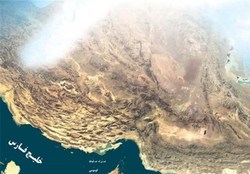 The United States’ decision to include Israel in a naval coalition in the Persian Gulf is a “very stupid move diplomatically” as it will only provoke Iran and stumble the whole region into an all-out war, says a New York-based author and commentator.
The United States’ decision to include Israel in a naval coalition in the Persian Gulf is a “very stupid move diplomatically” as it will only provoke Iran and stumble the whole region into an all-out war, says a New York-based author and commentator. RNA - The United States has been trying to persuade its allies into an international coalition with the declared aim of providing “security” for merchant shipping in the Strait of Hormuz — through which about a fifth of all oil consumed globally pass —and other strategic Middle Eastern shipping lanes.
Israel announced earlier in the week that it would join what the US calls an effort to boost security of navigation in the Persian Gulf.
Before that, the US had officially asked Germany to participate — alongside Britain and France — in the coalition, a request that was declined by German Foreign Minister Heiko Maas. The UK, however, accepted to join the US-led coalition.
Japan has likewise refused to join the force, and France has expressed reservations.
Responding to the developments, Iran's defense chief said on Thursday that the US-proposed coalition would foment insecurity in the region contrary to US claims.
Iranian Foreign Minister Mohammad Javad Zarif also condemned on Friday the US attempts to set up the military coalition, stressing that the presence of extra-regional military forces in the strategic region would act as a “source of insecurity.”
Speaking on Press's The Debate program on Friday, Naseer al-Omari, an author and political commentator in New York, denounced the US administration’s move to involve Israel in the naval coalition as “provocative.”
“I think it is very provocative on the part of the US to include Israel…Bringing in the Israelis in such an open way is really not conducive to discussing peace or convincing Iran to come to the negotiating table,” Omari said.
“Bringing Israel in is really a very stupid move diplomatically, it doesn’t add up unless if you are trying to rub it in the face of Iran, which doesn’t serve any particular purpose,” he noted.
Another guest invited to the debate, Michael Springmann, Washington-based author and former US diplomat in Saudi Arabia, said there was no reason for the presence of American, British and Israeli warships in the Persian Gulf, and that Israel’s presence in the Persian gulf was an "antagonistic" move aimed to provoke a "general war" in the region.
Washington claims Tehran has played a role in two separate attacks on oil tankers in the Sea of Oman in May and June, without providing any credible evidence to support the accusations.
Iran has categorically rejected the charges.
Tensions have been running high between Iran and the US since Washington’s decision in May last year to abandon the 2015 Iran nuclear deal and reimpose sanctions on Tehran as part of a “maximum pressure” campaign aimed at forcing it to renegotiate a new deal that addresses its ballistic missile program and regional influence as well.
The tensions hit a new high after Iran shot down a US surveillance drone on June 20, following its violation of Iranian airspace. Iran has warned Washington that wouldn't hesitate to shot down more drones.
The United States has engaged in significant regional military buildup over the past weeks, including by sending an aircraft carrier, a bomber task force, an assault ship, and around 1,500 additional forces to the Middle East.
Tehran has time and again said that it does not seek military confrontations with the United States, yet stands ready to defend its interests in the region.
847/940